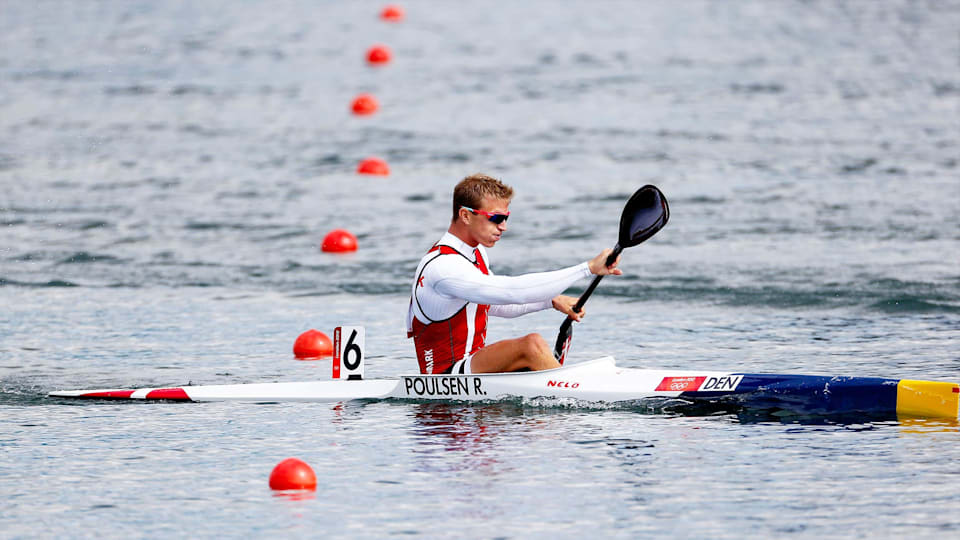Recognising and battling the mental health “opponent”
On World Mental Health Day 2020, Danish canoeist René Holten Poulsen opens up about how a terrible experience at the Olympic Games Rio 2016 elicited a post-traumatic stress disorder (PTSD) reaction, and details the steps he has taken to recover as he aims to come back stronger in Tokyo next year.

Following a disappointing race at Rio 2016, René Holten Poulsen continued to train hard. He was improving physically during the three years leading up to the 2019 World Championships, yet his times in competition were slower. Poulsen describes the incomprehension and frustration he felt through this difficult time, and what helped him get through it.
“I knew something was wrong”
At the 2017 World Championships, I couldn’t sleep for four days during the competition, and I didn’t know why. At the 2018 European Championships, I was so far behind in the B final, and I couldn’t explain what was happening. And then in the 2019 World Championship semi-final, I was sitting in a good position with 250m to go, and I just stopped.
Normally, when you’re a competitive athlete, if you give up you’d have remorse, but on this occasion I had none of that. I didn’t stop for anything; I didn’t know why I stopped paddling, and I knew something was wrong.
The next day, Denmark’s team manager, who is also a sports psychologist and a former air force soldier, pulled me aside and said: “You said something after the race, and I’ve had my suspicions for a while. I’m sure you have a trauma and a PTSD reaction; it’s the only thing that makes sense.”
What I had apparently said when I came off the water was that the race reminded me of the 2016 Olympic final, and that it was all I could think about. So after that, he was certain something was completely off.
It was kind of a relief to hear, because I had been wondering why I was not improving; it was such a contradiction. I could see my physical tests getting better, but I was feeling worse and worse, and my performance was declining.
“You can learn from it, and you can learn to live with it”
So, finally, I actually had an opponent. And from there, I started writing diaries, reading books, and working with a sports psychologist we have at Team Denmark. Writing the diary, and finding out what I felt, why I felt it, how it had affected me and how I felt about it, was a process that I went into just having to trust that, at some point, I was going to get out the other side. And I don’t know for sure if this is the reason why, but I just started feeling better and better.
I don't think you ever really get over trauma. But I think you can learn from it, and you can learn to live with it. It’s an ongoing process, and you just get better at balancing it. On bad days in training, I still see that moment from Rio 2016, and I can still have that feeling. But at least now I know what it is, which makes it so much easier.
All my research says that the more you know and read about trauma, the more you understand it, and the easier it is to cope with it or to get through it and work with it. I probably spent 10 hours a week studying how to be present in the now, and that research, combined with the journaling and having someone to talk to about it – a psychologist – are the three tools I used. I would say they are pretty basic tools that help you mentally, and a sports psychologist or any psychologist would probably advise the same.
I think what's important is that all athletes should be more aware of this issue, and that sports organisations and companies take a bigger look at it. For me, the joy that I can bring with me to training now has a positive impact not only on my own training, but also on my training partners – just like in the world of work.
Support for athletes’ mental well-being
Over the past few months, with the COVID-19 pandemic turning athletes’ lives upside down all over the world, causing isolation from communities, and putting goals and dreams on hold, athlete mental health has become more important than ever.
The International Olympic Committee (IOC) has been leading the way in promoting athlete mental health and developing ways to help athletes and their entourages detect and handle mental health concerns.
In May 2020, the partnership with the World Health Organization (WHO) was strengthened with the signing of an agreement to demonstrate the shared commitment to promoting a healthy society through sport.